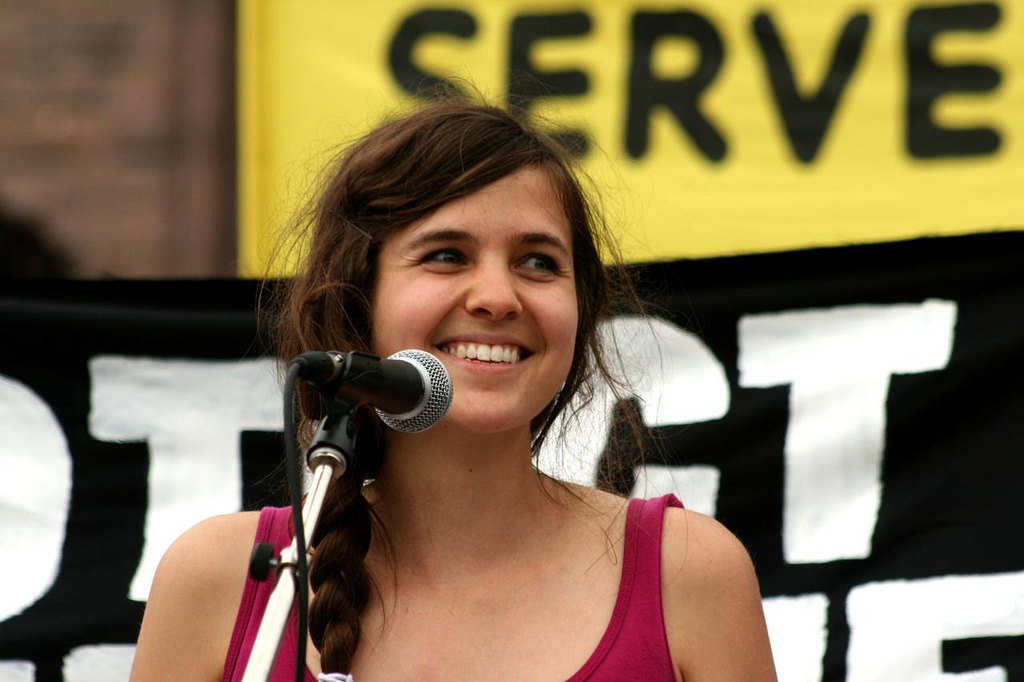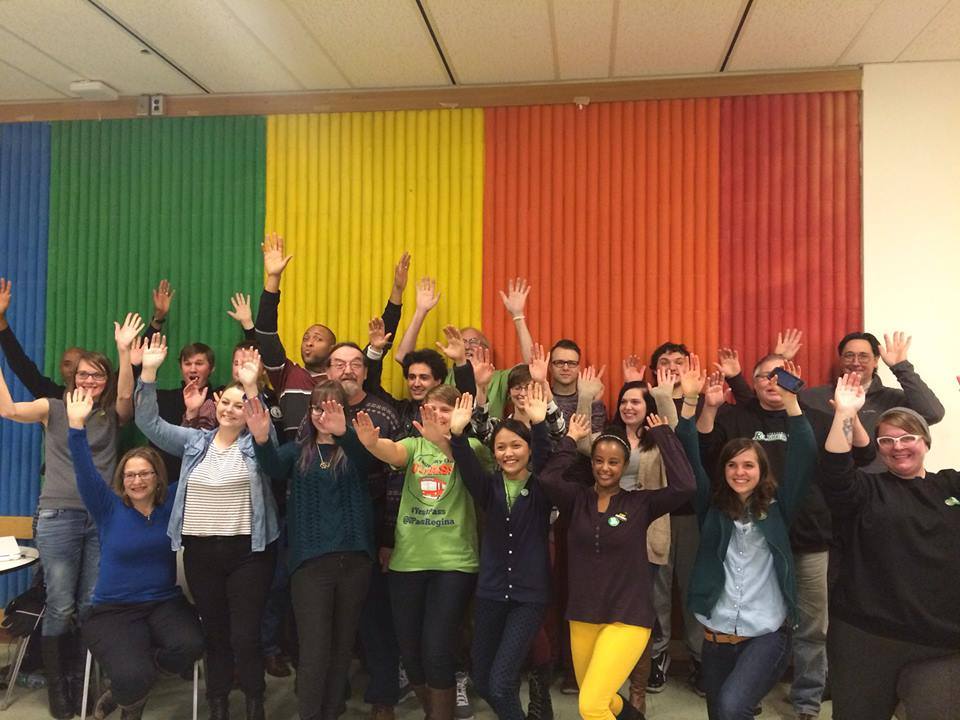Like this article? rabble is reader-supported journalism. Chip in to keep stories like these coming.
Over one million eligible young adults did not vote in the last federal election. If a new initiative works, many of the young people who ignored the ballot boxes last time around will be transformed into voters when an election is called.
The Council of Canadians has recently launched a Get Out the Youth Vote campaign.
In 2011, the Conservatives won a majority government by just over 6,000 votes across Canada’s 308 ridings. With the party winning only 39.6 per cent of the popular vote, many Canadians were left scratching their heads, perplexed at how exactly that translated into a majority government. The 2011 election saw a voter turnout of 61.1 per cent. Among youth, a modest 38.8 per cent cast a ballot in the election.
Brigette DePape is a political activist known for her “Stop Harper” action when she was a parliamentary page. She is also the coordinator of Get Out the Youth Vote.
“Youth have the power to be game changers in the next election [by electing] a government that really reflects our values,” she explains.
She notes that if youth indeed, get out and change the game with their votes that, “[we] could see parties that are protecting the environment and parties that are critical of war.”
The campaign plan begins with a Game Changers Tour where campaigners tour the country to inspire and educate youth. The tour will stop at Simon Fraser University, Nippissing University and Ryerson among others. DePape adds that, “[The campaign] also wants to identify key youth leaders who want to see change.”
Anna Dipple, executive director of Regina Public Interest Research Group (RPIRG), was one of the individuals who brought the Game Changers Tour to RPIRG’s attention. The group subsequently chose to partner with the Council of Canadians on the tour.
“RPIRG as an organization decided to get involved with this project, because we see it as an important way to empower students at the [University of Regina] and at campuses around Canada to see the potential for their vote to make positive political change in Canada,” Dipple said.
RPIRG also plans to partner with other campus groups as well as the Council of Canadians to run a campaign to get students out to vote before the 2015 Federal election by gearing up in the fall 2015 semester.
Events such as the Game Changers Tour are designed to prove to young adults that their voices and their vote indeed do make a significant difference in elections. However, some people see direct action such as protest and rallies as a more effective way of creating change, for others, distain for political participation is deep-rooted.
Distrust of the system is something we’ve all heard about before. Sadie-Phoenix Lavoie from Sagkeeng First Nation Treaty 1, is currently attending the University of Winnipeg and serving as the Aboriginal Student Commissioner of the Canadian Federation of Students (CFS) Manitoba Chapter. She says that when she asks fellow students why they don’t participate in politics they reply that sometimes the very act of not voting is a way to protest, a way to express their mistrust in a system that has little representation by young MPs. Not voting is a way of articulating their frustration with current political discourse.
“When asked what it will take for them to vote, a common answer is simply being heard,” said Lavoie.
Lavoie is also participating in the ‘It’s No Secret’ campaign run by the Canadian Federation of Students, which gives students the opportunity to learn about political issues, get involved with events, petitions, and awareness campaigns.
“The young population are the future and they know that in order for things to get any better, they need their ideas, perspectives and knowledge to be treated just as valid as any other citizen in this country,” she said.
A research report published by the Canadian Policy Research Networks (CPRN) suggests that age is one of the strongest predictors of non-traditional forms of political participation. The report references an early quote by political scientist Russell Dalton claiming protests are the “domain of the young.” The report found that, indeed, for those in the youngest eligible voting group, the participation in unconventional political actions outpaced respondents in every other age category. The involvement of young people in politics is clear; it simply isn’t being expressed through traditional means such as voting.
Although she emphasizes the importance of voting, DePape sympathizes with those who favour other forms of political participation.
“I definitely hear [everyone] on the importance of action beyond the ballot box and through direct action as well,” she said.
“I see the youth vote not as a solution to a failing democracy and system, but one small step to influence decisions that really matter — like whether we go to war, approve certain pipelines, etc. Like some friends say, it is the least we can do,” she added.
The second phase of ‘Get Out the Youth Vote’ is to ask participants to pledge that they will vote, while emphasizing key issues for young voters: post-secondary education funding, environmental ethics, and more critical discourse around war and foreign policy.
“We want to get at least 10,000 youth pledged — especially in those key swing ridings,” says DePape.
DePape makes clear that the kinds of decisions newly eligible participants in traditional politics make with respect to voting are in line with the demographics of youth in Canada.
“We’ve all grown up in a time of only neo-liberal government. We don’t know anything different. We are often pigeonholed into make consumer-esque decisions,” she said.
DePape highlights that this campaign is about making youth a pivotal voice in the bigger decisions made by our federal government, such as whether or not to construct a pipeline or whether or not to go to war.
To you would like to find out more or pledge your vote, you can do so here.
Ashley Splawinski is a student at the University of Toronto. Previously, Ashley worked as a producer and host of News Now on CHRY 105.5 FM covering Canadian social, political, and environmental issues. You can visit her personal blog www.lionpolitics.tumblr.com and follow her on twitter @asplawinski.





